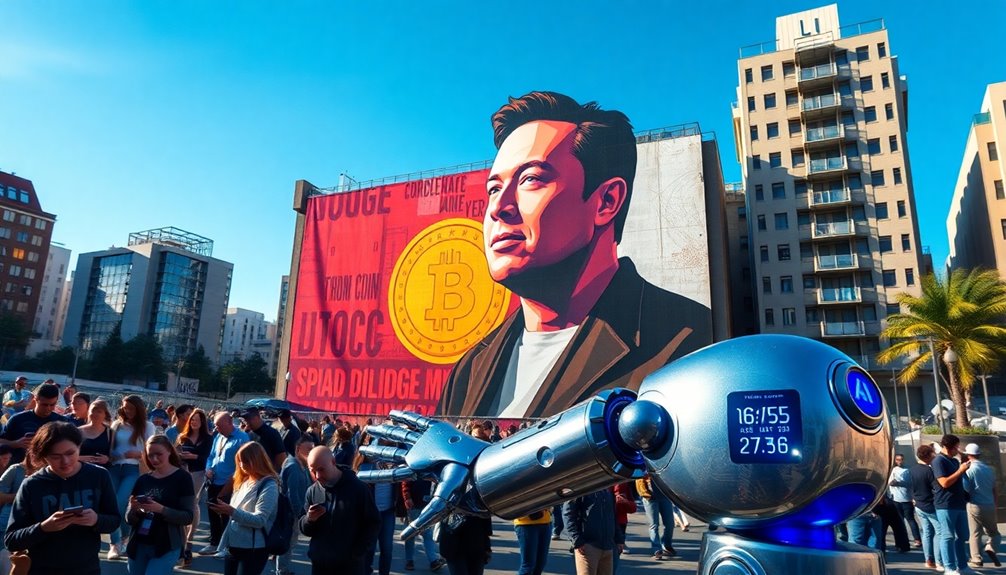You might be surprised to see how Elon Musk is steering the DOGE initiative, merging it with the evolving landscape of AI in government spending. His push for modernized technology and streamlined regulations hints at a new era of efficiency and accountability. Imagine AI tools capable of dissecting spending habits to reduce waste. What could this mean for how public funds are allocated? The implications are vast and complex, beckoning further exploration.

When you think about transformative figures in technology, Elon Musk often comes to mind, especially with his leadership of the newly established DOGE initiative. This initiative, born from an executive order by President Trump, aims to modernize federal technology and streamline government efficiency. Under Musk's guidance, DOGE operates uniquely within the White House framework, rather than as a traditional agency. This structure allows it to focus on cutting regulations and reducing government expenditures, a mission that resonates with Musk's vision for innovation.
DOGE's activities have already started making waves across various government departments. They've accessed systems from the Treasury Department, USAID, and the Small Business Administration, demonstrating their ambitious reach. A noteworthy visit to the Centers for Disease Control and Prevention illustrates the breadth of their engagement. By training AI chatbots to analyze government spending data, DOGE is making strides toward utilizing technology to identify potential areas for spending cuts. Musk's team has gained access to Treasury Department payment systems, which enhances their ability to monitor and optimize financial resources effectively.
However, this innovative approach isn't without its risks. The possibility of AI hallucinating facts and leaking sensitive data raises ethical concerns that can't be ignored.
Despite these challenges, you can't overlook the transformative prospects that DOGE brings to government spending. The initiative aims to substantially reduce waste and enhance operational efficiency. Musk's push for the wholesale removal of regulations is aimed at propelling innovation forward, but it invites skepticism regarding its long-term implications. Critics often point to misconceptions about government debt, likening it to household debt inappropriately. Yet, it's crucial to remember that the government plays a significant role in fostering innovation through public investment.
The ongoing development of AI tools by DOGE is a testament to its commitment to leveraging technology for improved governance. While the rollout of these tools has faced setbacks, the potential for AI to streamline operations remains promising. If managed effectively, AI could redefine how government spending is approached, making it more transparent and accountable.
As you consider the future of DOGE and Musk's involvement, it's essential to weigh both the transformative potential and the ethical implications of these initiatives. Balancing innovation with responsible oversight will be key in navigating the complexities of AI in government. In this evolving landscape, your perspective on Musk and DOGE will undoubtedly shape how you view the intersection of technology and public service.









